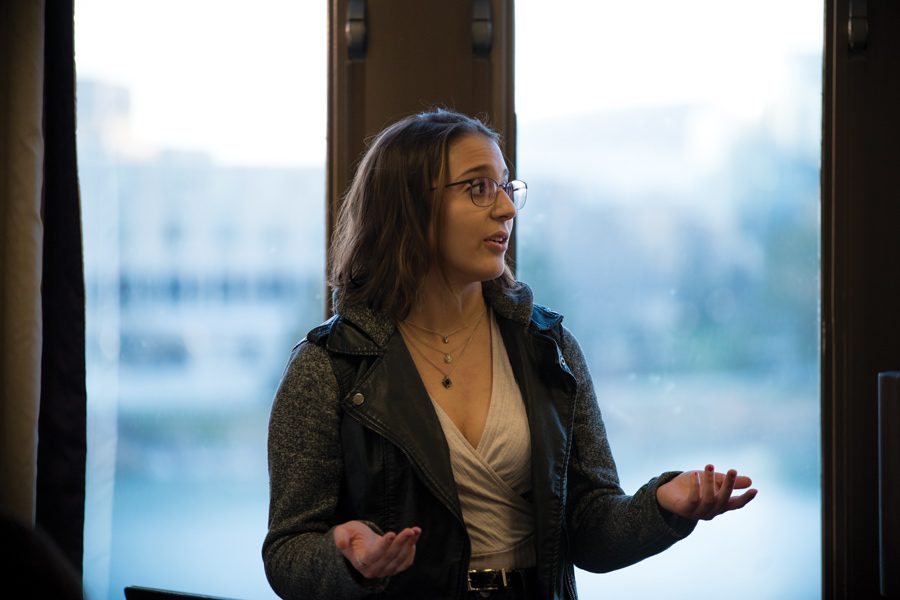ASG Senate aims to legitimize student organizations’ usage of Venmo
(Kate Salvidio/Daily Senior Staffer)
Vice president for A-status finances Izzy Dobbel speaks during ASG Senate. Dobbel started an ad-hoc committee to research the potential incorporation of Venmo into the Student Organization Finance Office’s accounts.
April 25, 2018
During Wednesday’s Associated Student Government Senate, vice president for A-status finances Izzy Dobbel announced the creation of an ad-hoc committee to research the use of Venmo for student organizations.
Dobbel, a SESP sophomore, told The Daily allowing student organizations to use Venmo would help digitize the Student Organization Finance Office, which currently operates on a “paper system.”
“Girl Scouts started using (Venmo) to sell cookies by the arch,” Dobbel said at Senate. “They’re ahead of the game. We need to step up.”
Dobbel told The Daily many student organizations already use Venmo accounts, which sometimes contain more money than their official SOFO account. She said the issue was brought to her attention when she learned that an organization had made a lot of transactions through Venmo and then struggled to transfer those profits into its official account.
She said she hopes incorporating Venmo will increase transparency and standardize its usage. She added that it could make it easier for students to purchase tickets to student organizations’ events.
“It makes it easier for students to just buy a $5 ticket right when they get to the door rather than having to spot each other with cash,” Dobbel said.
Earlier, Senate unanimously voted to confirm five account executives to the A-status finance committee.
Senate also unanimously voted to allocate $1,500 from the Wild Ideas Fund to the Strangers Project, “a performance art piece put on by a nationally-renowned artist that a few students want to bring to campus,” chief of staff Lars Benson said.
Though the students asked for $5,000, the Weinberg senior said the committee encouraged them to apply for grant programs and fundraise the rest of the money.
In addition, Weinberg freshman Nyle Arora introduced a code change regarding a potential impeachment of the parliamentarian. In the event that the parliamentarian were to be impeached, under the previous code, the individual would lead the impeachment proceedings — an obvious conflict of interest.
Arora brought this concern to parliamentarian Henry Molnar, and the two drafted the change to create the position of judicial pro tempore to lead that specific impeachment hearing instead. The judicial pro tempore is the most senior member of the Rules Committee, or, if all members have the same level of experience, an internally elected member.
“We like to make stupid things less stupid, so we worked together to write this legislation,” Arora said.
Speaker of the Senate Adam Downing said last week’s resolution concerning feminine hygiene products had been removed from the docket.
Email: [email protected]
Twitter: @birenbomb


